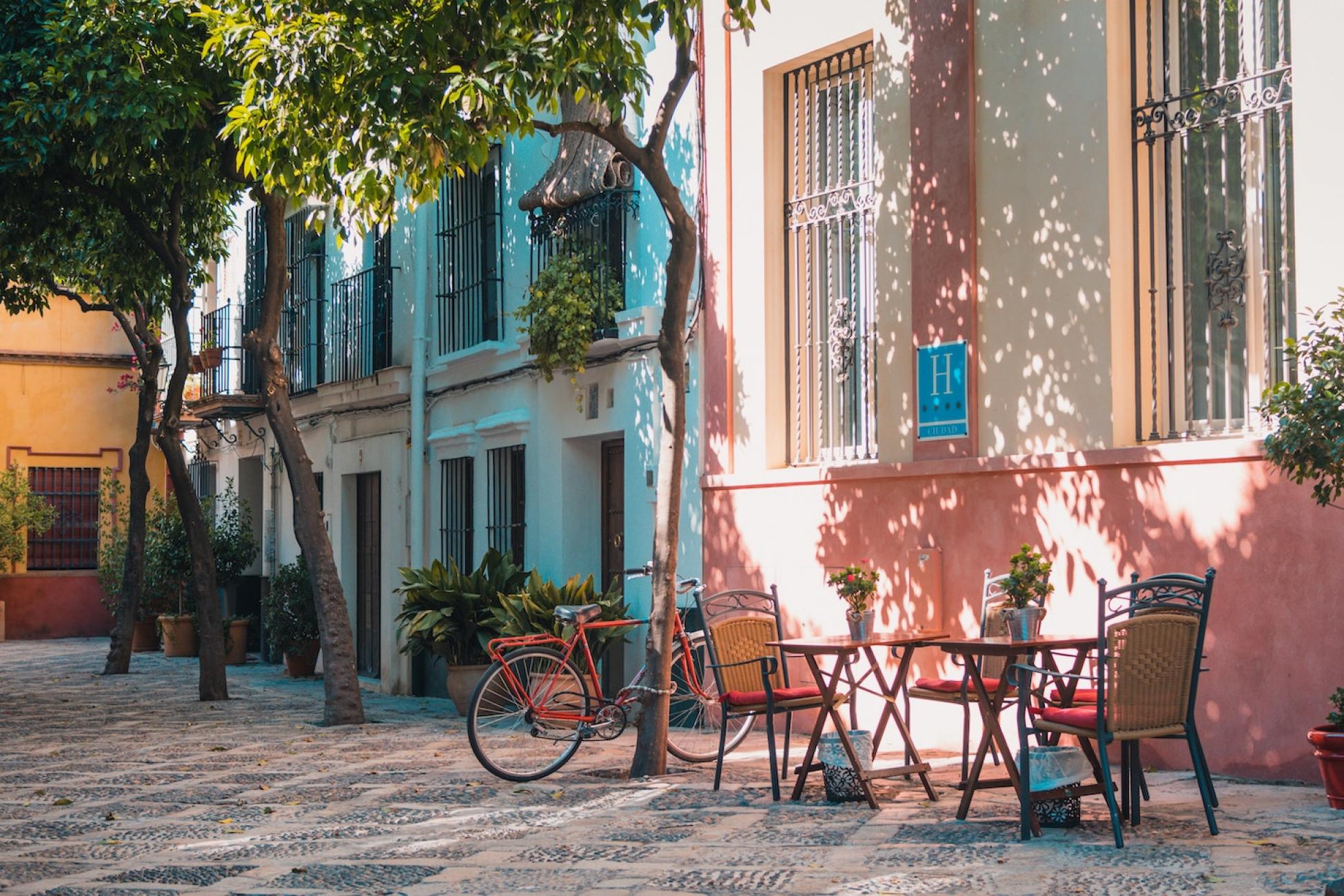When the opportunity to move to Spain knocked on my door sometime in the summer of 2019, I graciously accepted. I moved to the northwestern principality of Asturias in September. Ever since, I’ve been doing everything that one feels morally obligated to do when in Spain: eat tapas, drink way too many cafés, and kiss everyone on the cheek before jumping head first into an overly animated conversation. The Spaniards are extremely social people. Any day of the week, you’d venture out and find slanted chairs on cobbled streets; little cafés filled with loud banter and laughter.
I have never been made to feel like an outsider here—whether it be the curious old lady at the bus stop, my jovial landlord who invited me for a Spanish lunch during the puente (long weekend) and made sure there was vegan food, or my employers who came to pick me up from the bus stop twenty miles out of town when I first arrived.
The impact of COVID-19
The people here love to participate and share and show that they care. Joy is a collective experience. Which is why it breaks my heart to see the country hit so hard by COVID-19. The people here love to participate and share and show that they care. Joy is a collective experience. Why is why it breaks my heart to see the country hit so hard by COVID-19. Add in the fact that the Spanish healthcare system—the one that they take so much pride in—has been severely overwhelmed due to the pandemic.
On the eighth of March—International Women’s Day—I was sitting at Starbucks, oblivious to the fact that a highly infectious virus was about to change the face of the nation. On my mind, instead, was feminism. Outside the windows, I could see purple banners, painted faces, LGBTQ+ flags and thousands of men, women and children proudly marching to the plaza. My flatmates had earlier informed me that three separate marches from different parts of Oviedo were to meet in the square by the Cathedral of San Salvador. Upon seeing them, the inner krantikari (Hindi for “a revolutionary”) in me awoke. I picked up my bag, fished out my phone and quickly made my way to the march (just for some context: right across the Mediterranean, the death toll in Italy had risen by 133 in just 24 hours).
Rising concerns
Things escalated in Spain—fast. On the 11th of March, I came back home to find my two flatmates—exchange students—in the kitchen, talking rather agitatedly in Czech. They informed me that a student at their university had just been diagnosed with COVID-19 and their campus was being closed as a result. Up until then, none of us had really grasped the gravity of the situation. Hell, less than a fortnight ago, I was in Barcelona, running around the streets of Las Ramblas and clicking photos at Park Guell. This was also during one of the wildest fiesta times in Spain, the week leading up to Lent.
My language school informed me that classes would continue as usual. Of course, much like the rest of the world, I had not done much to educate myself on the situation, and thus, remained unbothered by this news. “Flatten the curve” and “social distancing” were terms I was yet to become acquainted with. Had I seen them on a post or two while scrolling through my Instagram feed? Sure. I’d also managed to toss the concerns aside, assuming this was another #wokeboi thing that I did not have the mental capacity to deal with. Little did I know that these buzzwords would end up having the largest social benefit in the long run.
The following day at the academy, the classes were unusually empty—parents had decided to keep the baby chicks home. I saw a colleague look visibly irritated; she was thinking that people had gone loco. Obviously there was no reason to be scared; this was all just a gross overreaction. So we thought.
Suddenly, everything changes
It blows my mind at how fast things moved. I went from being utterly unconcerned—joyful, even, at having gotten a few days off to plan Eurotrip #6—to being slightly paranoid (“Do I have it? I could have it”), to accepting that this was really happening. Still, it did not mean the world was ending, even though the situation had rapidly begun to feel like the beginning of a bad zombie movie.
On a Thursday night, I am told the academy was shutting down for two weeks. That Friday evening, I am told I won’t be getting paid for half the month. That night, too, one of my roommates leaves. Saturday morning, I’m catching a plane to Barcelona. By Saturday afternoon, my family has persuaded me to come back to India. And by Saturday evening, the plan has been scrapped due to international border issues and my lack of excitement at the prospect of staying in a government building for two weeks. Saturday evening, I’m catching a bus to Bilbao, and by Sunday afternoon, I’m back in Oviedo. Two sleepless nights, seven plus hours of phone conversations and a 150 euros later, I find myself in my apartment taking a well deserved shower.
Ever since then, I’ve been at home—alone. I get out once in every few days to pick up groceries. Of course, I’m positively out of a job and squandering my savings on nachos and guac. There was one time I had to go to the bank, and I remember that it was a good day because, hey, at least I got to walk two miles. I open the window for fresh air, and poke my head out at 8 p.m. every evening to cheer on the heath workers. Other than that, I read On The Road and wonder when I’ll be on it again.
Add this article to your reading list




